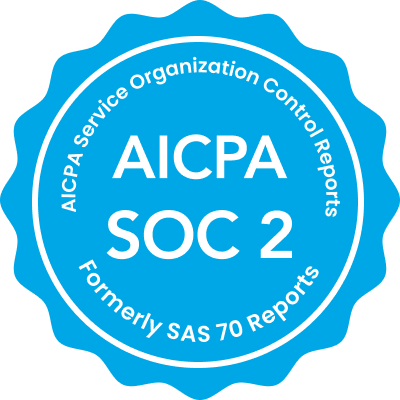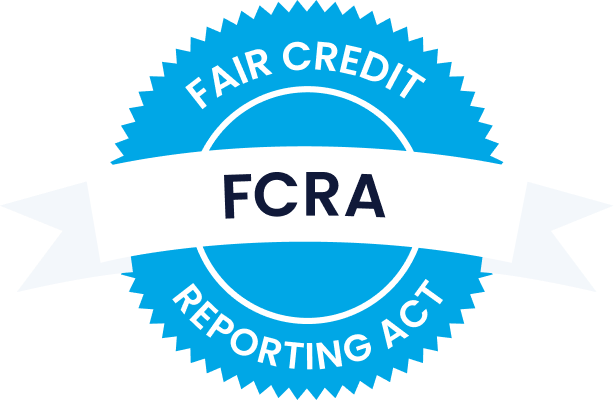Knowing how to verify employment history for your rental applicants is one of the most crucial steps in the tenant screening process. However, digging into an applicant’s employment situation may feel awkward and intimidating, especially if this is your first time doing it.
You might be unsure what questions to ask or what documents to examine. You might be worried about appearing intrusive and demanding. And you may be nervous about breaching privacy laws.
In this article, we’ll discuss how to approach employment verification when screening tenants. We’ll also outline the steps you need to take to get the details you need without a hitch—and within the bounds of the law.
Why should landlords verify employment history?
There are two main reasons why it’s vital to examine a prospective tenant’s employment history. First, you’ll need to confirm their identity, and second, it’s important to assess their financial stability.
Yes, you can collect personal details about an applicant during a pre-screening interview. You can also ask them to provide this information on their rental application form.
But unless you verify the details using a third-party source (like their employer), you’ll have no way to determine whether they’re being truthful. It’s possible the applicant isn’t who they say they are. They may have applied to become your tenant under a false name and with forged documentation.
Besides verifying a tenant’s identity, reviewing their employment history will give you a sense of their financial situation. Is their income steady, or does it fluctuate from month to month? Are they earning enough money to cover their rent and other everyday expenses? Do they tend to stay with an employer long-term or engage in job hopping?
A tenant who earns a high income consistently will have an easier time paying rent than someone with low or erratic earnings. Calculating their rent-to-income ratio is a quick way to measure the risk of default on rent.
Step-by-step guide: how to verify employment history for a tenant
Navigating an applicant’s employment history may seem daunting and confusing at first. However, following the steps below will make the process smoother.
Step 1: Obtain consent from the applicant to check their employment history
As a landlord, you have the right to scrutinize an applicant’s employment background. However, you must obtain their explicit consent before doing so.
The best time to ask for their permission is after they’ve submitted their rental application and fulfilled your pre-screening criteria.
Ensure that your rental application has a section that mentions that by completing and signing the document, they consent to an employer verification check. Still, to be safe, it’s always good to inform them that you’ll contact their employer and other references during your pre-screening interview.
You can use the signed rental application as proof of the tenant’s consent when requesting employment details from their place of work. Some employers will ask that you present it before they divulge any information.
Step 2: Request pay stubs from the applicant
Once you obtain the applicant’s consent to review their employment history, the next step is to ask them to supply you with pay stubs.
The purpose of examining a pay stub is to check how much income the applicant earns from their job. While they’ve likely stated their monthly earnings on their rental application, you need to verify if the numbers provided are accurate by comparing them against the information found on their employer’s pay stub.
Be sure to request at least three months’ worth of pay stubs. That way, you can see if their income is consistent or erratic. Also, pay stubs can be easily faked, so look for any red flags that a supporting rental application document could have been doctored.
Step 3: Search for the employer’s contact information online
The next step is to gather the employer’s contact details, as you’ll eventually need to contact them to confirm the applicant’s employment status.
An online search is the best place to get the information you need. Today, most businesses maintain a website with readily available contact details, such as a phone number and email address.
If a business lacks a website, you’ll have to consult an online directory such as Yellow Pages.
Alternatively, a company may utilize social media accounts to manage their online presence instead of a website. You may find contact information listed on their profiles. LinkedIn is an excellent platform to begin your search as it’s geared primarily toward businesses.
Step 4: Compare the employer’s contact details with those provided by the applicant
Do the employer contact details you’ve discovered online match those provided by the applicant? If not, they may have supplied you with false information. They may be unemployed or have never worked at the company and are trying to embellish their rental application form.
Due to such risks, it’s always wise to compare the contact information you obtain independently with what the applicant provides. As the saying goes, “trust, but verify.”
Step 5: Contact the applicant’s employer to verify their employment status
Now that you’ve assembled all the data you need, it’s time to interview the applicant’s employer to vet their job status.
Always keep in mind the overarching goal of the interview: to assess the potential tenant’s financial reliability and trustworthiness.
Each company has its own policy in handling reference checks from outside parties. Some may prefer a phone conversation, while others rely exclusively on email. You may be required to submit a copy of the applicant’s signed rental application form as proof you have their approval to do an employment check.
Compiling a list of questions beforehand will ensure you feel prepared during this step. If you are doing an employer check by phone or communicating by email, keep these tips in mind:
- Identify yourself by name.
- Explain that you’re looking to verify a few details about the applicant.
- Explain why you’re looking to verify these details (e.g., the applicant applied to be a tenant at your rental property).
- Explain why the questions you’ll be asking are relevant to your situation.
Questions to ask in an employment verification check
Unsure of what questions to ask the employer? Here’s a list to help you get started:
Naturally, you first want to confirm that the applicant works for the company they’ve listed on their rental application. If not, this is a major red flag. The applicant may have been fired, quit abruptly, or never even worked at the company.
This inquiry will provide insight into the applicant’s stability at the firm. Did they start a few weeks ago, or have they worked there for a decade? The longer they’ve been with their employer, the more stable their role is likely to be, and therefore, the more reliable their income.
Asking this question is imperative as income level is the best predictor of a tenant’s ability to pay rent. Of course, you also want to compare the applicant’s compensation as stated by their employer to see if it aligns with what appears on their rental application. The applicant may have inflated their earnings if there’s a discrepancy between the two sources.
This question will allow you to obtain helpful details about the applicant’s employment stability, which impacts their finances. Naturally, a tenant who is more likely to stay with their employer for the long haul will have an easier time keeping their rental payments current.
Frequently asked questions: How to verify employment history for potential tenants
Let’s assume you’ve verified an applicant’s current employer and are pleased with the information you’ve garnered. At this point, is it still worth contacting their past employers as well?
The answer is it depends.
Suppose the applicant has been with their current employer for many years. In that case, there’s likely no additional value in repeating the verification process a second time (or multiple times).
But what if the applicant has only worked at a specific company for three months? In this scenario, contacting a past employer is worthwhile to get a broader perspective on their job history.
Even if you have no intention of contacting past employers, it’s still worth reviewing the places an applicant has worked for in the past. You can assess their lifestyle and job stability by checking how often they switch employers. The best way to do this is to use a tenant background check report.
Occasionally, the applicant’s employer may be unwilling to disclose specific details about the individual’s job status for fear of legal repercussions. In such cases, you’ll have to make do with what you can get.
Still, you can make up for the informational shortfall by doing additional research on your own.
Ask the applicant if they’d be willing to provide you with extra documentation to back up their employment and income claims. Some documents you can request are bank statements and tax returns. These should equip you with enough details to measure the applicant’s earnings and overall financial stability.
It’s becoming increasingly common for more people to work as independent contractors, freelancers, and for them to take on various jobs in the gig economy. As a result, you may receive rental applications from self-employed individuals.
Since self-employed workers don’t have a boss, you’ll need to place more emphasis on analyzing their income, and, more importantly, the reliability of their income.
Ask the applicant to provide bank statements for several months (a year is best) and calculate their average monthly earnings. Their income may fluctuate widely depending on the type of work they do, which will increase the risk of missed rent payments.
You can also review their last few tax returns, business income statements, and client contracts for pending work.
Some self-employed tenants also maintain a healthy cash reserve to cover expenses during dry spells, so consider this factor in your evaluation, too.
Be sure to research online to see how well their business is performing and how much money and effort they’ve invested into it. Is it a full-time endeavour that brings in steady revenue or a temporary side hustle that barely allows them to scrape by?
Questions to avoid asking when verifying employment history
While it’s within your right to dig into an applicant’s employment situation, you must be mindful of the types of questions you ask.
In Canada, employers can collect and use personal information only with consent from their employees, which must be provided verbally or in writing. The same legal duty applies to the disclosure of personal information.
As a result, an employer will refuse to divulge certain information about an applicant that may get them in legal trouble. If you gain access to details that cause you to reject the applicant as a tenant, they may file a lawsuit against their employer.
Individuals who apply to be your tenant have a legal right to privacy in the workplace. These laws are enshrined in the Personal Information Protection and Electronic Documents Act (PIPEDA), which applies to private sector organizations. PIPEDA’s ten fair information principles provide a good overview of the rights and responsibilities of employers when dealing with sensitive information. It’s worth getting to know them as they apply to landlords too.
When looking into a person’s employment history, ask yourself the following: “Will this information help me determine the applicant’s suitability as a tenant?” If the answer is no, then refrain from asking the question.
Here are a few questions to avoid asking when verifying an applicant’s rental history:
- Do you plan on terminating [applicant’s name]?
- Has [applicant’s name] ever been on medical leave or taken a leave of absence?
- Has [applicant’s name] ever filed a worker’s compensation claim?
As long as you stick to questions that relate to the applicant’s employment status and compensation, you’ll be fine. Open-ended inquiries are okay to ask, but remember never to pressure the employer to reveal information about the applicant’s private life.
Our final thoughts
Verifying employment history can help you assess an applicant’s income, which impacts their ability to handle rent payments. It can also help you confirm their identity and provide insights about their stability and trustworthiness.
Knowing how to verify employment history for prospective tenants can be intimidating if you’re a new property manager. However, you can use the tips and recommendations in this article as a roadmap to guide you through the process from start to finish.
To help make employment verification a breeze, SingleKey offers the Tenant Report. This comprehensive document provides employment references, proof of income, and past employment details. An in-depth credit report, public records scan, and criminal records search are also included.





